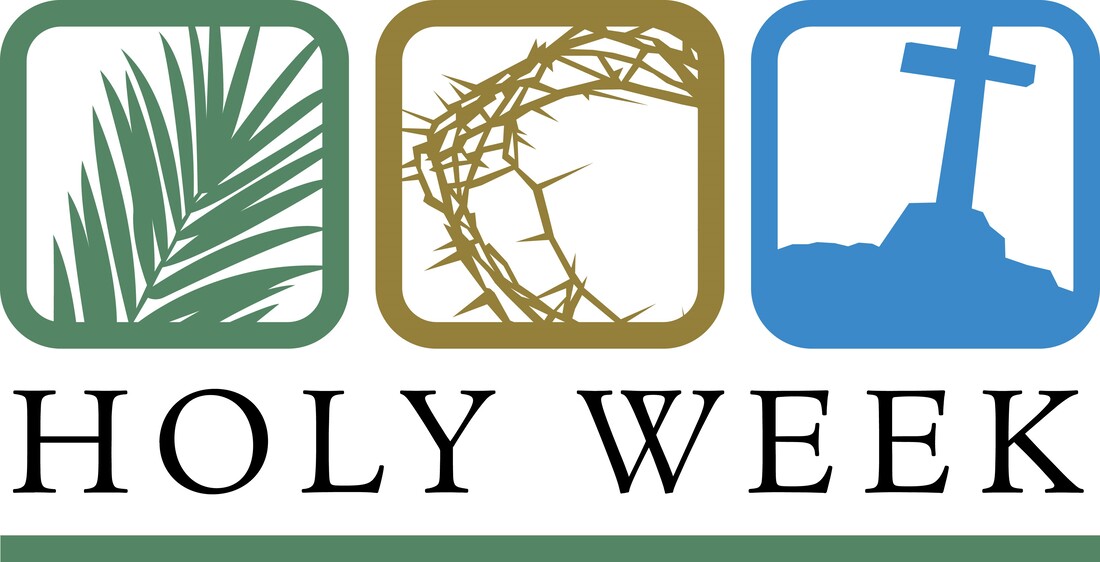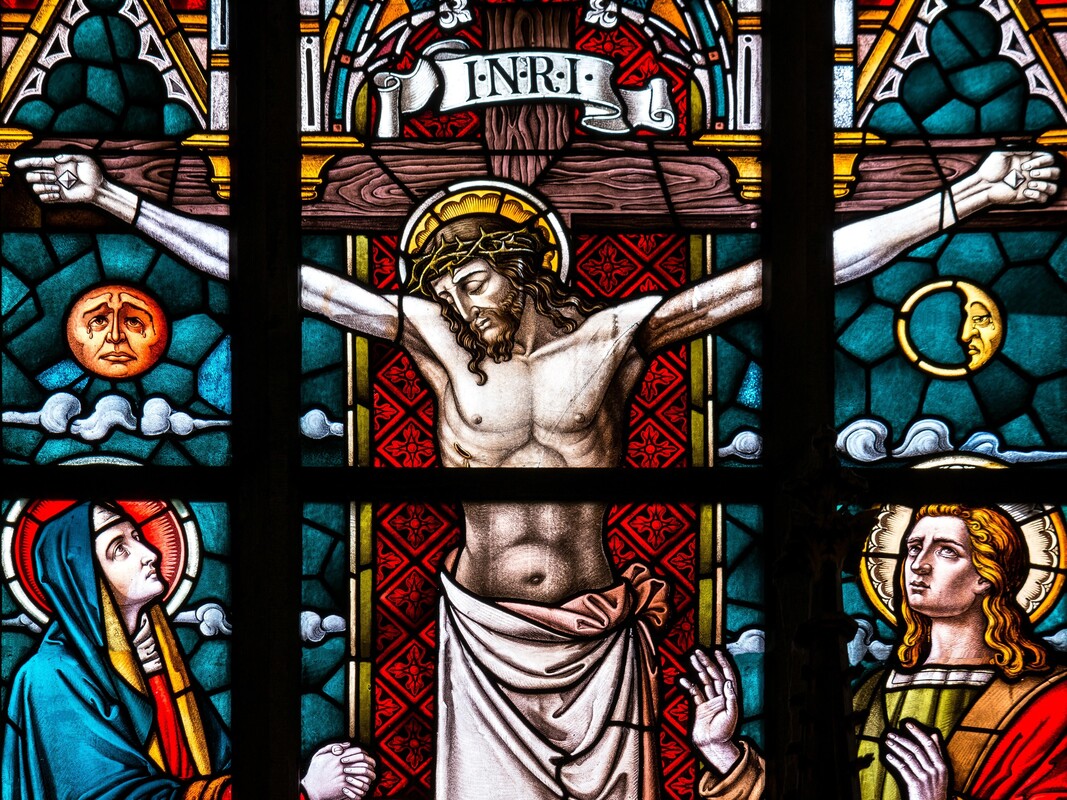|
In The Way of Perfection, Teresa of Avila explains how contemplation can arise from verbal prayer. She mentions several repetitive prayers she has personally found helpful, especially the “Our Father”, or Lord’s Prayer. Over a number of chapters, she then elaborates on her understanding of that prayer, and I cannot help but hear in her writing the depth of her prayer life and the love she has for her Lord. She begins with the following words,
“Our Father, which art in the heavens”. My Lord, how fittingly you reveal yourself as the Father of such a Son. How fittingly your Son reveals himself as the Son of such a Father. May you be blessed forever and ever. Shouldn't a favour as great as this one come at the end of the prayer? Here at the beginning, you fill our hands and grant us so great a favour that it would be a great blessing if our understanding would be filled, and our will be occupied. We would thus be unable to say another word. How appropriate perfect contemplation would be here. How right the soul would be to enter into itself, so it could rise above itself and so that this holy Son might show it the nature of the place where he says his Father dwells in the heavens. Teresa goes on to speak of how wonderful it is that we are also children in this great family, and that the love between the family members is fully ours because of our inclusion through Jesus our Brother. May you this week have a sense of being a member of this wonderful, loving family, and may it lead your soul into joyful contemplation. Brian Holliday Anam Cara 16 May 2023 Photo by Download a pic Donate a buck!
0 Comments
Catherine of Siena is an amazing woman. She had visions from an early age, refused to marry, and refused to become a nun. She had a profound influence on the politics of her day, and on the story of the Church. I have been reading Catherine’s Dialogue of Divine Providence and have found her sense of God’s presence and love quite captivating. Her cell, of course, was not in a monastery, but rather within herself. She speaks of it as her “cell of self-knowledge,” both knowledge of herself and knowledge of God, for, says Catherine, “knowledge must precede love.” That love comes from humble prayer that unites the soul to God, and Catherine describes it with these striking images and words,
And, since the soul seems, in such communion, sweetly to bind herself fast within herself and with God, and knows better His truth, inasmuch as the soul is then in God, and God in the soul, as the fish is in the sea, and the sea in the fish … As I pray, I think of being in my cell of self-knowledge with its intimacy of knowing myself and God, and I imagine sinking into the ocean of God’s loving presence which surrounds me and sweetly binds me fast to God. As you journey with God this week, may you also have a sense of your inner cell of self-knowledge, and of the ocean of God’s love which surrounds you and sweetly binds you fast to God. Brian Holliday Anam Cara 2 May 2023 Photo by Sebastian Arie Voortman on Pexels The sense of perfection which came through Edith Stein’s writing was one of the things I found difficult in reading her work. I decided to try and understand what she meant by going back to the founder of her order, Teresa of Avila. Teresa’s book, The Way of Perfection, was written for her community of nuns as a guide for their life together. Like Edith Stein’s work, it has some wonderful passages, but also some which seem to have a hard, demanding edge. I read on, then came to Chapter 8 where Terresa says,
I confess that … I am not as perfect as I should like to be. I must say the same about all the virtues and about all I am dealing with here, for it is easier to write about such things than to practice them. Such a confession, I realized, was all I was looking for, as it opened up a sense togetherness as vulnerable, fallible humans on a journey to deeply love and engage with the Unseen One. There is so much I admire about the dedication and wholehearted commitment of these women, but it is the echo of the sinner’s prayer, “Lord be merciful to me, a sinner,” which allows me to connect more deeply with them. May you, this week, have a sense of togetherness and encouragement with all vulnerable and fallible humans who seek to love and engage with the Unseen One. Brian Holliday Anam Cara 18 April 2023 Photo by Donald Tong It has been surprising to me that I have found reading the spiritual writing of Edith Stein quite difficult. They haven’t moved me the way other spiritual writings have moved me. I have pondered on why that might be. Some of it is religious language and cultural difference, and yet it is more than that, for the people who knew Edith Stein were deeply moved by her writings, her intellect, and her love. But if there is one thing I take from her it is the sense of connection between the mystery of suffering and the mystery of love. Edith wrote about this in a poem, “I Will Remain with You…,” not long before she died in Auschwitz in 1942. Speaking of the mystery of both the suffering of Jesus and her love and bond with Jesus she wrote,
How wonderful are your gracious wonders! All we can do is be amazed and stammer and fall silent Because intellect and words fail. These mysteries come into focus for us in Holy Week and Easter, the mystery of Christ’s suffering, and the mystery of his love for us and for all our suffering world. In the presence of such mysteries all we can do is fall into silence and wonder. May you, this Easter, find such moments of silence and wonder at the mystery of Christ’s suffering, and the mystery of his deep love for us and for all our suffering world. Brian Holliday Anam Cara 4 April 2023 The Latin phrase “Ave Crux, Spes Unica!” means “Hail Cross, Only Hope!” In September of 1939, Edith Stein wrote a short article on this exclamation. Earlier that month, war had broken out across Europe, and Stein repeatedly writes in her article “the world is in flames.” I hear her anguish and wonder why she chose to write about this phrase. It is thought to come, I discovered, from a verse of a tenth century Latin hymn that says,
O hail the cross, our only hope in this passiontide, grant increase of grace to believers, and remove the sins of the guilty. Stein had a deep sense that her enclosed life, which she described as a life of prayer and “living penitentially,” was on behalf of the anguished world. While I am not living penitentially in the way Stein and many others have lived, I have a new sense that my small act of giving up something for Lent is not just for me but is on behalf our deeply anguished world. May you, in your journey through these final weeks of Lent, find your sense of prayer and penance also embracing our deeply tormented world. Brian Holliday Anam Cara 21 March 2023 Image from Pixabay In the early church, the human person was seen as unique in creation, because humans formed a bridge that connected all the visible creation with that of the invisible. This bridge connecting the visible world with the invisible is seen, for example, in the Communion, or the Eucharist. “Eucharist” means thanksgiving, and in The Hidden Life Edith Stein beautifully describes how in celebrating it we
call all creation together to unite once more in praising the Lord: mountains and hills, streams and rivers, seas and lands and all that inhabit them, clouds and winds, rain and snow, all peoples of the earth, every class and race of people, and finally also the inhabitants of heaven, the angels and the saints. What a vision! God’s great love for us and all creation is expressed in the Eucharist where we join our own thanksgiving with all creation’s praise to God. Edith Stein calls it “the great Eucharist of creation.” As you journey through Lent this week, may you be aware of creation’s praise of God surrounding you, and may you pause and join in giving thanks to God for God’s great love expressed to us through Jesus. Brian Holliday Anam Cara 7 March 2023 Image by beate bachmann from Pixabay This week, as I prepare for my journey through Lent, I have started reading Edith Stein’s The Hidden Life, a collection of her essays and meditations. Edith Stein was a Discalced Carmelite sister and, along with all the Carmelites, she followed the tradition of Elijah, the Old Testament prophet who was most associated with Mount Carmel in Israel. They saw Elijah as an example of gospel poverty, and an authentic prototype of the Saviour.
In the first mention of Elijah in the Old Testament, he names himself as one who stands before God. Edith Stein describes this thought as foundational to the Discalced Carmelite sisters whose vocation is also To stand before the face of the living God... But it is the way Edith describes Elijah’s stance that speaks to me most deeply of her own inner desire, for she says of Elijah, He stood before God's face because this was the eternal treasure for whose sake, he gave up all earthly goods. She goes on to say, Elijah stands before God's face because all his love belongs to the Lord. I do not pretend to know the depth of what Edith describes, but I hear her soul’s passion to be constantly in the loving presence of the living God. It refocusses me on what is most important in life and calls me to be still and pay attention to the One who loves me so deeply. May you, as Lent begins this week, take time to “stand before the face of the living God” and give all your love to the One who loves you so deeply. Brian Holliday Anam Cara 22 February 2023 Photo by Oleksandr Pidvalnyi Pexels. |
AuthorSelected members of the Dayspring Community make contributions to this page on a regular basis. Archives
May 2023
Categories |

Dayspring acknowledges the role of First Nations people as the traditional custodians of the land on which Dayspring Events are held. Dayspring recognizes their unbroken continuing connection to land, water and community, their efforts to preserve and strengthen their culture and language and pays respects to elders past present and emerging who share in this work.
Except as permitted by the copyright law applicable to you, you may not reproduce or communicate any of the content on this website, including files downloadable from this website without the permission of the copyright owner.
EMAIL: [email protected]
© Dayspring Community (WA) Inc. 2023
Except as permitted by the copyright law applicable to you, you may not reproduce or communicate any of the content on this website, including files downloadable from this website without the permission of the copyright owner.
EMAIL: [email protected]
© Dayspring Community (WA) Inc. 2023
Proudly powered by Weebly








 RSS Feed
RSS Feed